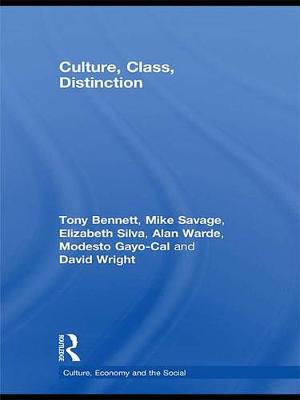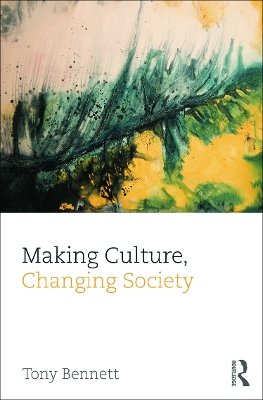CRESC
2 total works
Culture, Class, Distinction
by Tony Bennett, Mike Savage, Elizabeth Bortolaia Silva, Alan Warde, Modesto Gayo-Cal, and David Wright
Choice Recommended Title, February 2010
Culture, Class, Distinction is major contribution to international debates regarding the role of cultural capital in relation to modern forms of inequality. Drawing on a national study of the organisation of cultural practices in contemporary Britain, the authors review Bourdieu’s classic study of the relationships between culture and class in the light of subsequent debates.
In doing so they re-appraise the relationships between class, gender and ethnicity, music, film, television, literary, and arts consumption, the organisation of sporting and culinary practices, and practices of bodily and self maintenance. As the most comprehensive account to date of the varied interpretations of cultural capital that have been developed in the wake of Bourdieu’s work, Culture, Class, Distinction offers the first systematic assessment of the relationships between cultural practice and the social divisions of class, gender and ethnicity in contemporary Britain.
It is essential reading for anyone interested in the relationships between culture and society.
Making Culture, Changing Society proposes a challenging new account of the relations between culture and society focused on how particular forms of cultural knowledge and expertise work on, order and transform society. Examining these forms of culture's action on the social as aspects of a historically distinctive ensemble of cultural institutions, it considers the diverse ways in which culture has been produced and mobilised as a resource for governing populations.
These concerns are illustrated in detailed case studies of how anthropological conceptions of the relations between race and culture have shaped - and been shaped by - the relationships between museums, fieldwork and governmental programmes in early twentieth-century France and Australia. These are complemented by a closely argued account of the relations between aesthetics and governance that, in contrast to conventional approaches, interprets the historical emergence of the autonomy of the aesthetic as vastly expanding the range of art's social uses.
In pursuing these concerns, particular attention is given to the role that the cultural disciplines have played in making up and distributing the freedoms through which modern forms of liberal government operate. An examination of the place that has been accorded habit as a route into the regulation of conduct within liberal social, cultural and political thought brings these questions into sharp focus. The book will be of interest to students and scholars of sociology, cultural studies, media studies, anthropology, museum and heritage studies, history, art history and cultural policy studies.

